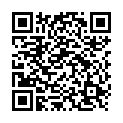|
|
|
| Module code: E411 |
|
|
4V (4 hours per week) |
|
5 |
| Semester: 4 |
| Mandatory course: yes |
Language of instruction:
German |
Assessment:
Written examination
[updated 11.03.2010]
|
E411 (P211-0178) Electrical Engineering, Bachelor, ASPO 01.10.2005
, semester 4, mandatory course
|
60 class hours (= 45 clock hours) over a 15-week period.
The total student study time is 150 hours (equivalent to 5 ECTS credits).
There are therefore 105 hours available for class preparation and follow-up work and exam preparation.
|
Recommended prerequisites (modules):
None.
|
Recommended as prerequisite for:
E516 Communications technology 2
E612 Laboratory Course in Communications Technology
[updated 12.03.2010]
|
Module coordinator:
Prof. Dr. Horst Wieker |
Lecturer:
Prof. Dr. Horst Wieker
[updated 11.03.2010]
|
Learning outcomes:
Students who have successfully completed this module will have gained a broad knowledge of communications engineering. They will understand the components of communications networks and how they function. They will also have learned about the structures and differences of the various types of communications networks. The basic knowledge acquired by students in this module will enable them to learn in their later careers those specific aspects of communications engineering that are of direct relevance to their professional work.
[updated 11.03.2010]
|
Module content:
1. General principles
2. Functional processes
3. Structure of narrowband networks
4. Functional units
5. Access networks
6. Mobile networks
7. Architecture and components
[updated 11.03.2010]
|
Teaching methods/Media:
Video projector, blackboard
[updated 11.03.2010]
|
Recommended or required reading:
SIGMUND G., Technik der Netze, Hüthing
GERKE P.R., Digitale Kommunikationsnetze, Springer
HAAß W.D., Handbuch der Kommunikationsnetze, Springer
RÖSSEL H., Jahrbuch 2001 Kommunikationsnetze, Addison-Wesley
[updated 11.03.2010]
|


